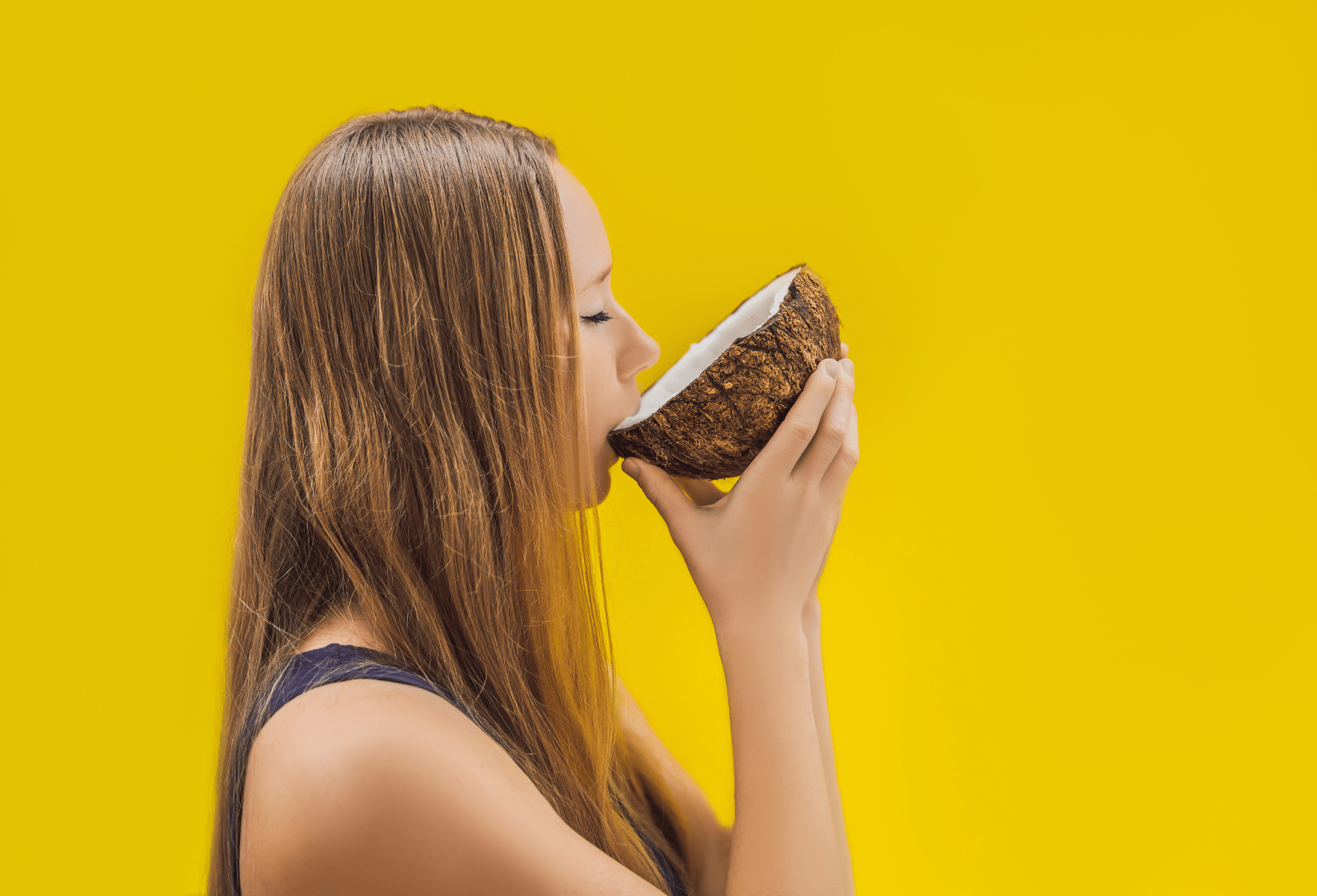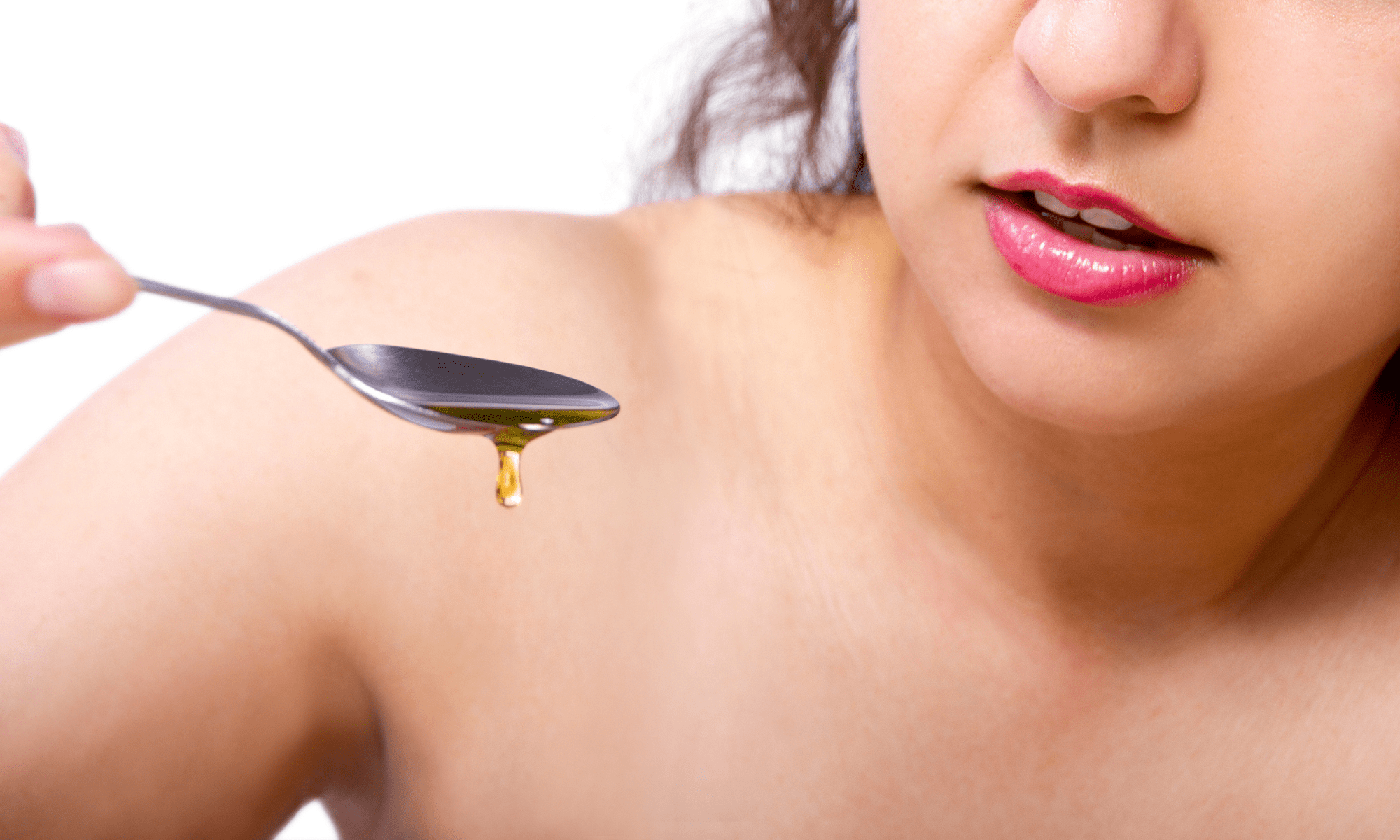
Oil Pulling: Nurturing Oral Wellness and Detoxifying Naturally
Oil pulling, an ancient Ayurvedic practice with roots dating back centuries, is currently enjoying a surge in global popularity. This straightforward method entails swishing a natural oil, often coconut oil, in your mouth for around 15-20 minutes. Despite its unconventional nature, the claimed advantages are diverse. So, let’s embark on a journey into the realm of oil pulling and unearth how this uncomplicated ritual can support oral well-being and assist your body in its detoxification processes.
In a world teeming with oral care products and complex wellness routines, oil pulling offers a refreshingly simple approach to health. It’s a practice that doesn’t demand much but promises substantial rewards. If you’re curious about what this age-old technique can do for you, read on to explore the potential benefits of oil pulling and learn how to incorporate it into your daily regimen.
The Basics of Oil Pulling
Before we delve into its many benefits, let’s take a closer look at how oil pulling works. The central idea behind oil pulling is to employ natural oil as a cleansing agent. As you swish this oil around your mouth, it binds to bacteria, toxins, and other impurities, effectively “pulling” them away from your oral cavity.
- Choose Your Oil Wisely: While coconut oil is the most popular choice for oil pulling, alternatives such as sesame, sunflower, and olive oil can be just as effective. The key is to select high-quality, cold-pressed, and preferably organic oils for optimal results.
- Timing for Success: The best time for oil pulling is in the morning, on an empty stomach. Swish the oil around your mouth for 15-20 minutes. If you’re new to this practice, it’s perfectly fine to start slowly, with sessions lasting 5-10 minutes, which can still be highly beneficial.
- Avoid Ingestion: It’s essential to remember not to swallow the oil during the process. The oil will contain the impurities you’re trying to remove from your mouth, and ingesting them should be avoided.
- Proper Disposal: After 15-20 minutes of swishing, spit the oil into a trash can, rather than a sink, as the oil can accumulate in drains over time and potentially clog them. Be diligent in not swallowing the oil, as it now contains toxins and bacteria removed from your mouth.
Understanding the foundation of oil pulling is the first step in appreciating its potential. Now, let’s explore the myriad benefits this straightforward practice may offer.
The Benefits of Oil Pulling
- Enhanced Oral Hygiene: One of the foremost advantages of oil pulling is its potential to promote superior oral hygiene. This practice is thought to reduce the presence of harmful bacteria in the mouth, leading to various reported benefits. Many individuals have attested to experiencing whiter teeth, fresher breath, and healthier gums after incorporating oil pulling into their daily routine. The process of swishing oil in the mouth helps in dislodging and removing bacteria and toxins, contributing to an overall cleaner and healthier oral environment.
- Effective Detoxification: While the primary action of oil pulling occurs in the mouth, it is believed to have a broader detoxifying effect on the entire body. The swishing action, when done correctly, enables the oil to capture toxins, bacteria, and other impurities from the mouth. Over time, this practice is believed to reduce the overall toxic load on the body. By preventing the entry of these harmful substances through the mouth, oil pulling may support the body’s natural detoxification mechanisms.
- Reduced Oral Inflammation: Oil pulling’s impact isn’t limited to just hygiene. It may also help in reducing inflammation in the mouth, which is crucial for sustaining optimal oral health. This reduction in inflammation can potentially have positive effects on systemic inflammation throughout the body. Keeping oral inflammation at bay is vital, as it can lead to various dental issues, such as gum disease and tooth decay, and also contribute to broader health problems.
- Relief from Headaches: Some individuals have reported relief from headaches and migraines after incorporating oil pulling into their daily routine. While this area requires more extensive research to draw concrete conclusions, anecdotal evidence suggests that the practice can indeed provide relief from the discomfort of headaches.
- Improved Skin Health: An intriguing and noteworthy benefit of oil pulling is its potential to improve skin health. The detoxification process it promotes is thought to have a positive impact on the skin. Many practitioners have reported having clearer and healthier skin after making oil pulling a part of their daily ritual. This practice is believed to reduce skin issues such as acne and eczema, creating a brighter and more radiant complexion.
- Balanced Hormones: While scientific research on this particular aspect is limited, there are anecdotal reports suggesting that oil pulling can play a role in balancing hormones within the body. Hormonal balance is essential for various bodily functions and overall well-being. While it’s essential to approach this topic with caution and seek medical advice for specific hormonal concerns, oil pulling may contribute positively to hormonal equilibrium for some individuals.
- Mindful Morning Ritual: Beyond its physical benefits, oil pulling can serve as a mindful morning ritual. The 15-20 minutes spent swishing oil can be a calming and meditative practice that helps individuals start their day with intention and mindfulness. Practicing self-care through this simple ritual sets a positive tone for the day and encourages a sense of well-being and self-awareness.
By understanding the multifaceted advantages of oil pulling, we can appreciate how this seemingly simple practice can profoundly impact our health and well-being.
How to Get Started
If you’re interested in trying oil pulling, here’s how to get started:
- Select Your Oil: The first step in starting oil pulling is to choose the oil that best suits your preferences and needs. High-quality oils such as coconut, sesame, or sunflower are common choices. Opt for cold-pressed, organic variants, as they are believed to offer the best results. The purity of the oil is essential to ensure that you’re not introducing unwanted additives into your mouth.
- Morning Ritual: To maximize the benefits of oil pulling, it is recommended to incorporate it into your morning routine. The optimal time for oil pulling is right after waking up and on an empty stomach. This allows the oil to interact with your oral environment without interference from food or beverages, optimizing its cleansing effect.
- Start Gradually: If you’re new to oil pulling, it’s advisable to begin gradually. Start with a shorter duration, swishing the oil in your mouth for about 5-10 minutes. As you become more accustomed to the process and the oil’s texture, you can gradually increase the swishing time to 15-20 minutes. This gradual progression will help you adapt to the practice more comfortably.
- Gentle Swishing: When performing oil pulling, remember that the goal is to cleanse, not to vigorously agitate. Swish the oil gently through your oral cavity. Vigorous swishing can lead to jaw fatigue, which can be uncomfortable and may discourage regular practice. A gentle back-and-forth and swishing motion is all that’s required to ensure effective cleansing.
- Avoid Swallowing: A critical aspect of oil pulling is ensuring you do not swallow the oil during or after the process. The oil absorbs impurities and toxins from your mouth during the swishing process. Swallowing these substances can be counterproductive to the practice’s objective. Always remain mindful not to ingest any of the oil.
- Spit with Care: Once you’ve completed the recommended swishing time, spit the oil into a designated container, preferably a trash can. Avoid spitting it into the sink, as the oil can solidify and potentially clog drains over time. Interestingly, some practitioners suggest that the effects of the oil continue even after spitting, so there’s no need to rinse your mouth immediately. Simply discard the oil and proceed with your morning routine.
CAUTION!!!
While oil pulling can offer numerous benefits, there are some precautions to keep in mind:
- Allergic Reactions: If you’re allergic to the oil you’re using, it’s essential to avoid oil pulling with it.
- Gag Reflex: Some people may have a sensitive gag reflex, which can make oil pulling uncomfortable.
- Detox Reactions: During the detoxification process, some individuals may experience temporary discomfort such as headaches or congestion. This is often a sign that your body is eliminating toxins.
- Oral Health: Oil pulling is not a substitute for regular oral hygiene practices like brushing and flossing. It should complement your existing routine.
- Consult a Professional: If you have specific health concerns or are considering oil pulling for medicinal purposes, it’s advisable to consult with a healthcare professional.
Conclusion
Incorporating oil pulling into your daily routine is a simple, cost-effective, and potentially beneficial practice. While scientific research is ongoing, many individuals have reported improvements in their oral health and overall well-being after embracing this ancient Ayurvedic tradition. Remember that like any holistic practice, consistency is key, and you may need time to experience the full range of benefits. So, why not give it a try? Your mouth, and potentially your whole body, may thank you for it. If you have specific health concerns or are considering oil pulling for medicinal purposes, it’s advisable to consult with a healthcare professional. They can provide personalized guidance based on your unique health needs

References:
- Bedosky, L. (2023, March 9). Oil pulling benefits: 4 potential oral health perks. EverydayHealth.com. https://www.everydayhealth.com/integrative-health/potential-health-benefits-of-oil-pulling/
- Benefits, how to, and risks of oil pulling with coconut oil. (2023, May 15). https://www.medicalnewstoday.com/articles/323757
- BSc, K. G. (2023, March 13). Oil pulling with coconut oil can transform your dental health. Healthline. https://www.healthline.com/nutrition/oil-pulling-coconut-oil
- Burch, K. (2023). Benefits of oil pulling. Verywell Health. https://www.verywellhealth.com/oil-pulling-5083468
- Curatola, G., & Curatola, G. (2023). Oil Pulling for Dental Health: How it Works & How to Do It. Rejuvenation Dentistry. https://www.rejuvdentist.com/biological-dentistry/oil-pulling/
- Dental, B. H. (2023, June 5). What Is Oil Pulling And Will It Help Your Teeth? | Blue Haven Dental. Blue Haven Dental. https://bluehaven.dental/what-is-oil-pulling-and-will-it-help-your-teeth/
- Dental, S. (2020). What Oil Pulling Can Do For Your Oral Health. Sinada Dental. https://sinadadental.com/what-oil-pulling-can-do-for-your-oral-health/
- India, K. A. (2023, October 17). Oil pulling and its benefits: everything you need to know! Kerala Ayurveda. https://www.keralaayurveda.biz/blog/oil-pulling-comprehensive-guide-for-natural-wellness
- King, A. (2018). BAD SCIENCE: Oil pulling. British Dental Journal, 224(7), 470. https://doi.org/10.1038/sj.bdj.2018.281
- Millhone, C. (2023). Everything you need to know about oil pulling. Health. https://www.health.com/oil-pulling-7099029
- mindbodygreen. (2023, September 19). Let’s settle this: Does oil pulling actually work? Dentists tell all. Mindbodygreen. https://www.mindbodygreen.com/articles/what-is-oil-pulling
- Naseem, M. (2017, October 1). Oil pulling and importance of traditional medicine in oral health maintenance. PubMed Central (PMC). https://www.ncbi.nlm.nih.gov/pmc/articles/PMC5654187/
- Oakley, C. (2014, July 15). Should you try oil pulling? WebMD. https://www.webmd.com/oral-health/features/oil-pulling
- Rd, R. a. M. (2022, November 14). 6 Benefits of oil pulling — Plus how to do it. Healthline. https://www.healthline.com/nutrition/6-benefits-of-oil-pulling
- Team, W. (2022, December 15). The benefits of oil pulling for dental health. Cleveland Clinic. https://health.clevelandclinic.org/is-oil-pulling-your-best-choice-for-dental-health/
